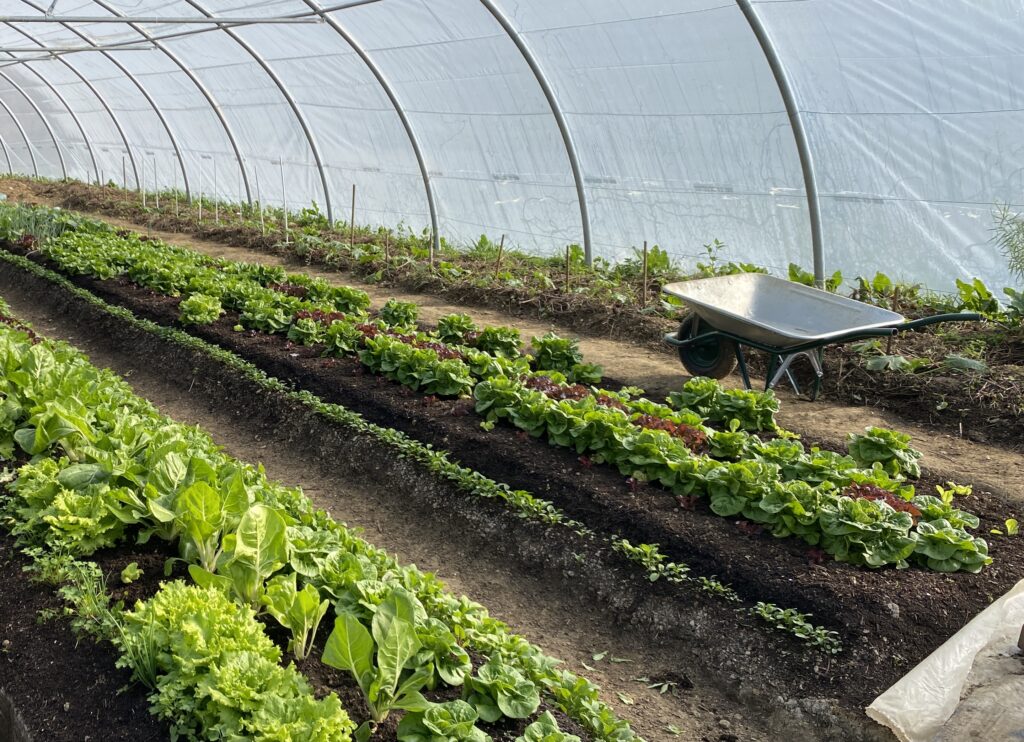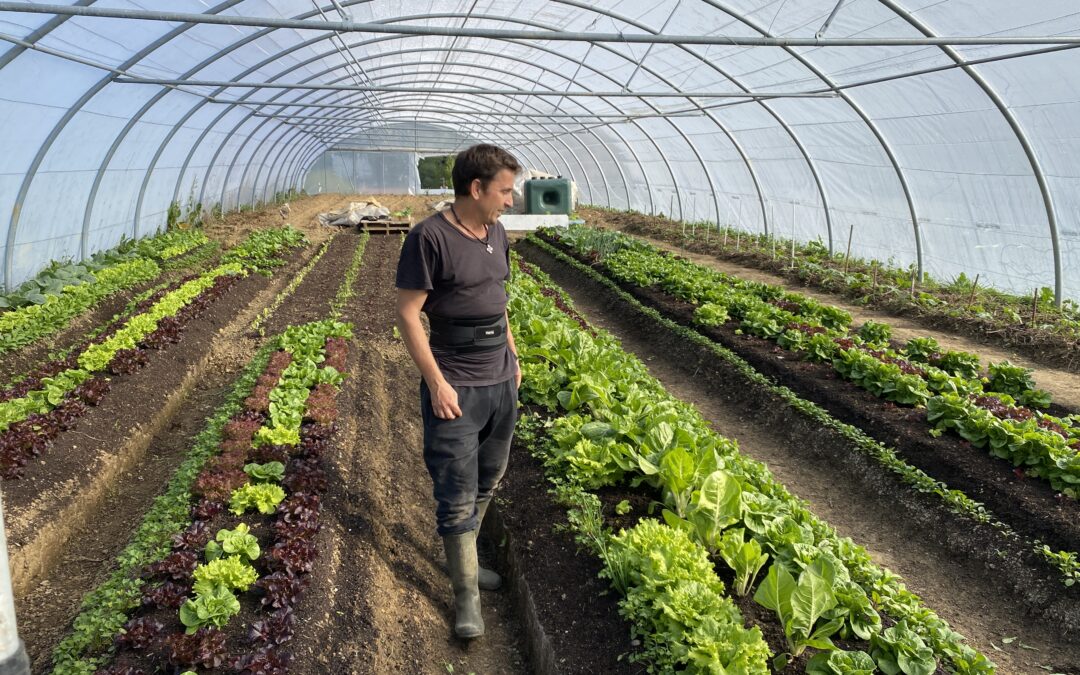The FUSILLI project partner Fomento de San Sebastián has recently launched the Donostia Urban Lur Initiative to activate the agricultural sector in the city of San Sebastián and to provide a job opportunity for entrepreneurs willing to manage an agricultural project. Land and infrastructures suitable for cultivation, tools to work it, technical training in agriculture, and support and advice on the marketing of products have been made available to agri-entrepreneurs. With this initiative, Fomento de San Sebastián aims to achieve a double objective: to promote self-employment and increase local production of garden produce for marketing.
The six vegetable gardens where the agri-entrepreneurs work is located in the Alza neighborhood of San Sebastián. They occupy a space of 2.7 hectares divided into six plots of between 4,000 and 6,000 square metres. All have a water supply, a 380 square metre greenhouse tunnel and access for mechanical vehicles. The agri-entrepreneurs have also been provided with the technical advice on agriculture necessary to start up the vegetable gardens.

Credits: Fomento San Sebastián SA
The six plots are operated by five agri-entrepreneurs, four men and one woman, aged between 30 and 60. They all live in San Sebastián and most of them have farming experience. Two have university degrees and some have taken training courses in agriculture. The sixth plot is occupied by Caritas (social organization) which works with people at risk of social exclusion.
The Urban Lur programme offers the transfer of the agricultural plots for a period of three years, with a 100% discount on the rental price during the first year. It should be noted that, as well as providing an outlet for entrepreneurs and unemployed people, who have priority, as do projects promoted by women or those committed to ecological production, the Urban Lur project arose after realizing that only 3.75% of the garden produce consumed in the city is produced in San Sebastian. For this reason, the aim is to promote this activity within the municipality and also the self-sufficiency of vegetables for the people of San Sebastián.
